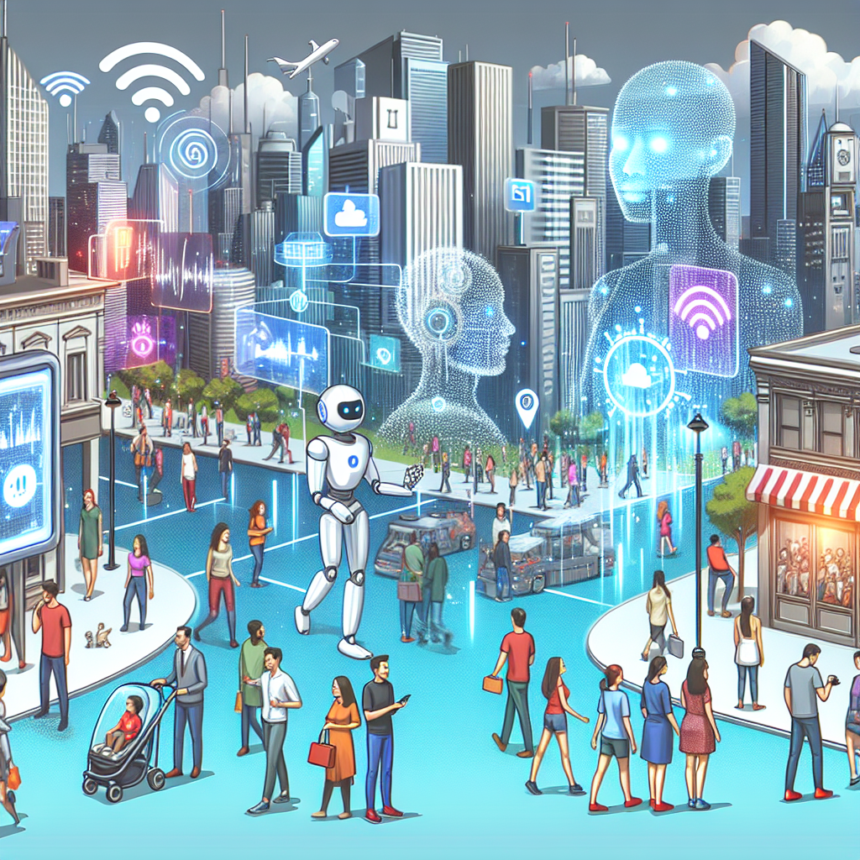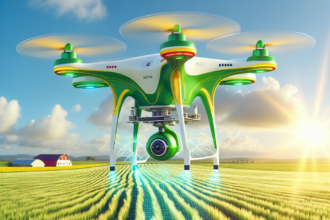Beyond Automation: Envisioning the Future of Artificial Intelligence in Society
As we stand on the cusp of a technological revolution, artificial intelligence (AI) is increasingly being heralded not just as a tool for automation but as a transformative force capable of reshaping society in profound ways. While the discussions so far have largely centered on AI’s ability to automate tasks, its potential extends far beyond this functional capacity. Envisioning a future with AI calls for an examination of its implications across social, economic, and ethical dimensions.
The Shift from Automation to Augmentation
A primary focus of AI has been its role in automating repetitive physical tasks or data-driven processes, thereby improving productivity and efficiency. However, the future of AI is about augmentation—enhancing human capabilities rather than merely replacing them. This transition has already begun to manifest in sectors such as healthcare, where AI-powered tools assist doctors in diagnostics, treatment recommendations, and patient management, thereby elevating the quality of care rather than sidelining professionals. The goal becomes symbiotic collaboration, where AI complements human skills to yield better outcomes.
Enhancing Decision-Making and Creativity
AI has the potential to revolutionize decision-making processes across various fields. By harnessing the power of data analytics, machine learning, and natural language processing, AI can sift through vast datasets to extract meaningful insights that humans might overlook. Businesses can leverage these insights to generate more effective strategies, while governments can utilize AI tools to address complex societal challenges, such as urban planning or disaster response.
In the realm of creativity, AI’s role is becoming increasingly noteworthy. From generating music and art to assisting writers in story creation, AI has shown it can be a valuable collaborator. Notably, tools like OpenAI’s ChatGPT or Google’s Bard have sparked debates on the authenticity of creativity, yet they ultimately push the boundaries of human expression by introducing new ways to brainstorm and ideate.
A New Economic Paradigm
The rise of AI could herald significant transformations in the economic landscape. It is likely to lead to new job creation as industries evolve and new markets emerge, challenging the narrative that AI will only displace jobs. For instance, AI will demand a workforce skilled in programming, data analysis, and machine management. As job roles shift, there should be a concerted effort to invest in education and retraining programs, ensuring that workers can adapt to the changing demand for skills.
Moreover, AI could bring about equitable economic growth by democratizing access to information and resources. Small businesses can utilize AI tools for market analysis and customer engagement, leveling the playing field against larger competitors. This enhanced capability could foster innovation and entrepreneurship, especially in developing regions that previously lacked robust infrastructure.
Ethical Considerations and Societal Impacts
As we integrate AI into our lives, ethical considerations become paramount. Addressing issues of bias in AI algorithms is critical; if not managed, these biases could perpetuate inequality in various sectors, from hiring practices to legal judgments. Advocating for transparency in AI development and implementation is crucial so that stakeholders are aware of how decisions are made and that AI systems function fairly.
Moreover, the impact of AI on privacy cannot be overlooked. As AI systems often require substantial amounts of data, striking a balance between data utility and user privacy rights is essential. Robust data governance frameworks must be established to protect individuals and ensure that AI systems operate within ethical constraints.
Fostering Global Cooperation
As the use of AI expands, so does the need for global cooperation. It is imperative to establish international standards and frameworks that govern AI-related technology and ethics. Collaborative efforts can mitigate risks associated with misuse and promote responsible AI development.
As we move forward into this AI-driven future, engaging in public discourse will enhance our collective understanding of its potential. Society must navigate these advanced tools with foresight, participation, and ethics in mind, ensuring AI serves humanity broadly and equitably.
FAQs about AI’s Future in Society
Q: Will AI completely replace human jobs?
A: While AI may automate certain tasks, it is more likely to transform jobs rather than eliminate them. Many roles will require collaboration between humans and AI, leading to new job creation.
Q: How can AI improve healthcare?
A: AI can assist in diagnostics, personalize treatment plans, and enhance patient management, enabling healthcare professionals to deliver better care.
Q: What are the ethical concerns related to AI?
A: Key concerns include algorithmic bias, data privacy issues, and the need for transparency. Addressing these issues is crucial for building trust in AI systems.
Q: How can we ensure AI benefits everyone?
A: Promoting policy frameworks that support inclusivity, investing in education and retraining programs, and ensuring equitable access to AI tools can help in this effort.
Q: Will AI change the way we share and consume information?
A: Yes, AI will continue to shape content creation and personalization, impacting how information is shared and consumed across various platforms.










